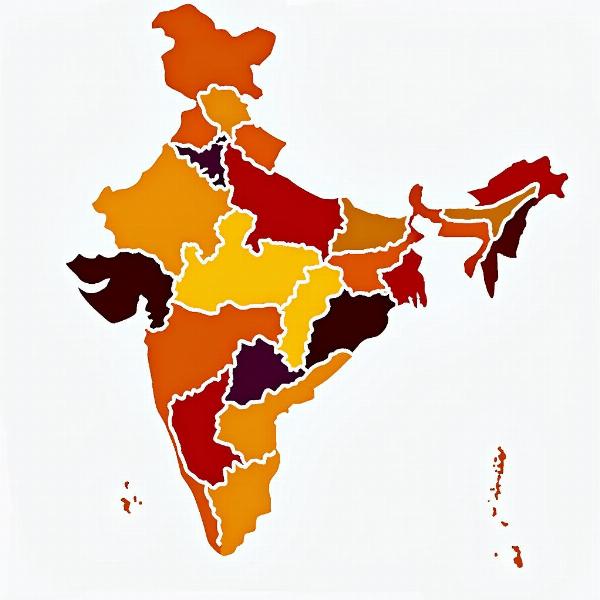“Who told you?” is a common phrase, but understanding its nuances in Hindi can be tricky. This article explores the various ways to express “who told you?” in Hindi, delving into the cultural context and appropriate usage. We’ll cover formal and informal variations, regional differences, and the subtle implications conveyed by each translation.
Different Ways to Say “Who Told You?” in Hindi
There isn’t one single perfect translation for “who told you?” in Hindi. The best option depends heavily on the context, your relationship with the person you’re speaking to, and the specific nuance you want to convey. Here are some common translations:
-
किसने बताया? (Kisne bataya?): This is the most straightforward and commonly used translation. It’s generally considered polite and suitable for most situations. It translates directly to “who told?” and is generally understood across different regions.
-
किसने कहा? (Kisne kaha?): This translates to “who said?” and is more informal than kisne bataya?. It’s suitable for casual conversations with friends and family.
-
तुम्हें किसने बताया? (Tumhen kisne bataya?): Adding tumhen (you) makes the sentence more direct and slightly emphasizes the “you” part of the question. It can be perceived as slightly more accusatory or inquisitive, depending on the tone.
-
आपको किसने बताया? (Aapko kisne bataya?): Using aapko (you – formal) makes the sentence respectful and suitable for addressing elders or people you don’t know well. This is the most polite form.
-
कहाँ से सुना? (Kahan se suna?): This translates to “where did you hear (it) from?” and focuses on the source of the information rather than the person who conveyed it. It can be a less confrontational way of asking “who told you?”.
Cultural Context and Implications
In Indian culture, directly asking “who told you?” can sometimes be perceived as challenging authority or questioning someone’s right to know something. Therefore, it’s important to be mindful of the context and your relationship with the person you’re speaking to. Using a softer approach like kahan se suna? can be more appropriate in certain situations.
Regional Variations
While the translations above are widely understood, regional variations exist. For instance, in some parts of North India, kisne kaha is more common than kisne bataya?, while in other regions, the opposite might be true. Being aware of these regional nuances can help you communicate more effectively.
 Map of India highlighting regional language variations.
Map of India highlighting regional language variations.
Choosing the Right Phrase
The table below summarizes the different ways to say “who told you?” in Hindi, along with their level of formality and common usage:
| Phrase | Formality | Usage |
|---|---|---|
| किसने बताया? (Kisne bataya?) | Neutral | Common, generally polite |
| किसने कहा? (Kisne kaha?) | Informal | Casual conversations |
| तुम्हें किसने बताया? (Tumhen kisne bataya?) | Informal/Direct | Emphasizes “you,” can be slightly accusatory |
| आपको किसने बताया? (Aapko kisne bataya?) | Formal | Respectful, for elders/strangers |
| कहाँ से सुना? (Kahan se suna?) | Indirect | Less confrontational |
“Who Told You Meaning in Hindi”: Responding to the Question
How you respond to “who told you?” in Hindi also depends on the context. If you’re comfortable revealing your source, you can simply state the person’s name. However, if you prefer not to disclose the source, you can use phrases like:
- मुझे याद नहीं है (Mujhe yaad nahi hai): I don’t remember.
- किसी ने बताया (Kisi ne bataya): Someone told me.
- मैं नहीं बता सकता/सकती (Main nahi bata sakta/sakti): I can’t tell you.
Conclusion: Navigating the Nuances
Understanding the various ways to say “who told you meaning in hindi” allows you to navigate social interactions with greater sensitivity and cultural awareness. Choosing the appropriate phrase demonstrates respect and helps avoid misunderstandings. By considering the context, your relationship with the person, and the specific nuance you want to convey, you can communicate effectively and build stronger connections.
FAQ:
- What is the most polite way to say “who told you” in Hindi? The most polite way is aapko kisne bataya?.
- Can I use kisne kaha? with elders? Generally, it’s best to avoid using kisne kaha? with elders; opt for a more formal phrase.
- Is kahan se suna? considered rude? No, kahan se suna? is generally not considered rude; it’s a less direct way of asking.
- What if I don’t want to reveal my source? You can politely say mujhe yaad nahi hai (I don’t remember) or main nahi bata sakta/sakti (I can’t tell you).
- Are there other regional variations I should be aware of? Yes, while the examples provided are widely understood, it’s always helpful to learn more about specific regional dialects.
Meaning-Hindi.in is your premier resource for professional Hindi translation services. We specialize in business, legal, technical, website, educational, and specialized translations, ensuring accuracy and cultural sensitivity. Our team of expert linguists delivers high-quality translations tailored to your specific needs. Need a document translated quickly and accurately? Contact us today at [email protected] or call +91 11-4502-7584. Meaning-Hindi.in is here to bridge the language gap for you.